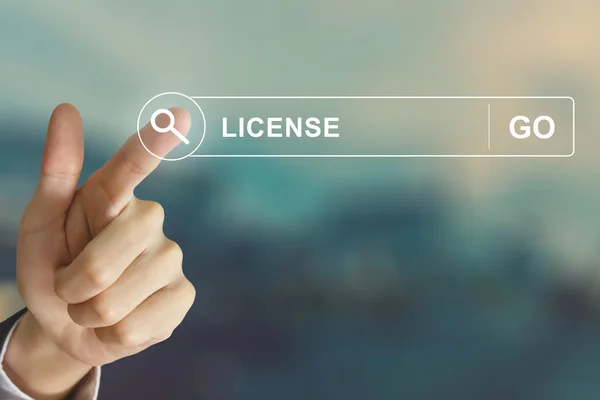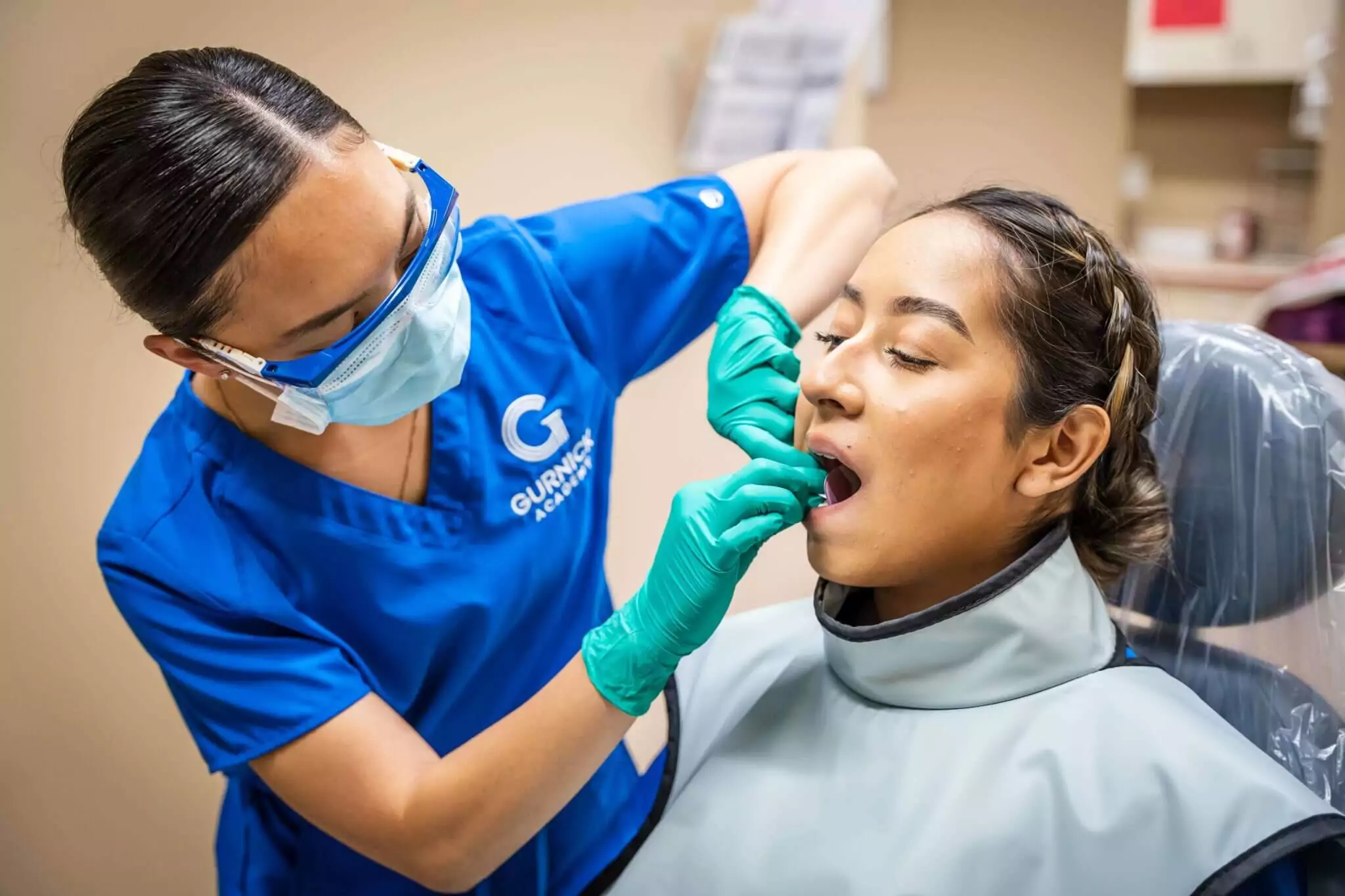Table of contents
Get Started with Kwikly
Get the latest updates, insights, and exclusive content delivered straight to your inbox.
Introduction to Dental Hygiene
Dental hygiene is at the heart of maintaining great oral health, and dental hygienists are the professionals who make it happen. As a dental hygienist, you play a crucial role in helping patients keep their teeth healthy and preventing oral diseases before they start. Dental hygiene offers a rewarding career path, with the chance to make a real difference in people’s lives every day.
To become a dental hygienist, you’ll need to complete a dental hygiene program, most often an associate degree, and earn your dental license. This education prepares you to clean patients’ teeth, examine them for signs of oral diseases, and educate patients on the best ways to care for their oral health at home. Dental hygienists work closely with dentists, forming a team that delivers high-quality dental care in a variety of settings, from private practices to public health clinics.
A career in dental hygiene not only provides competitive pay and job stability, but it also opens doors for advancement. Many dental hygienists choose to further their education and become a dentist, taking their expertise in dental care to the next level. Whether you’re just starting out or considering your next move, dental hygiene is a field full of opportunity and impact.
Understanding the Roles: Dental Hygienist vs. Dentist
In the dental world, dentists and dental hygienists play different but equally important roles. Dental hygienists focus on prevention by checking patients’ mouths, cleaning teeth, and teaching people how to care for their oral health at home. They are the ones working to stop problems before they start. Dentists, on the other hand, handle more complex issues by diagnosing conditions, creating treatment plans, and performing procedures such as fillings or surgeries. Together, dentists and dental hygienists provide essential services that maintain and restore oral health. Hygienists keep things healthy, while dentists step in when problems arise, making both roles vital to patient care.
Key Responsibilities of a Dental Hygienist
Dental hygienists are central to prevention in any dental office, with their work focused on both patient care and dental hygiene education. Every day, they check patients’ mouths for potential issues, clean teeth thoroughly, look for signs of gum infections such as periodontal disease, and take X-rays when needed. They also apply sealants and fluoride treatments to protect teeth and provide patients with instructions on how to care for their oral health at home. In addition, dental hygienists carefully review dental histories and use X-rays to help dentists identify problems early. Their efforts not only keep patients healthy but also ensure dental practices run smoothly by preventing issues before they become serious. Dental hygiene students receive hands-on training in all of these responsibilities as part of their education, preparing them to carry out this essential work.
Key Responsibilities of a Dentist
Dentists are the problem-solvers of dental medicine. They handle:
- Figuring out what’s wrong with patients’ mouths
- Prescribe medications when people need it
- Perform procedures, including non-surgical treatments like applying sealants and whitening tools
- Perform surgical procedures such as tooth extractions and soft tissue surgeries, as well as root canals and other oral surgical procedures
- Make treatment plans that actually work for each patient's teeth, so oral health issues get handled right
To practice as a dentist, you need to:
- Get your bachelor’s degree first
- Pass the Dental Admission Test (DAT)
- Complete either a Doctor of Dental Medicine (D.M.D.) or Doctor of Dental Surgery (D.D.S.) from a school that’s properly accredited
- Get your dental license so you can actually work—learn more about how to become a dental professional
.jpeg)
Can Dental Hygienists Transition to Dentists?
Yeah, dental hygienists can become dentists, and plenty of them do it. The education process for dental hygienists can streamline their transition to becoming a dentist. The training hygienists get gives them a solid start for more advanced dental studies. This foundation makes the switch doable and often gets dental hygienists excited about becoming a dentist.
A lot of hygienists want to make this change so they can perform more advanced dental procedures, do more advanced work, and make better money. Dentists are qualified to perform advanced dental procedures that hygienists typically do not. It’s not easy, but it’s definitely possible. You start with your dental hygiene degree, take the DAT, and go to dental school.
The fact that hygienists and dentists work so closely together motivates most dental hygienists to think about advancing their careers. There are a few similarities dental hygienists share with dentists that make the transition feel natural.
Steps to Transition from Dental Hygienist to Dentist
Making the move from dental hygienist to dentist takes a few specific steps that you can’t skip. First, you need your bachelor’s degree. Then comes dental school—you must attend dental school to become a dentist. Finally, you need to get licensed. Each step matters, and you’ve got to stick with it, but attending dental school is a crucial part of the process and you’ll end up with a career that’s worth the work.
Earn a Bachelor's Degree
A high school diploma is required to enter most dental hygiene or pre-dental programs, as it serves as the minimum education requirement for admission. Becoming a dentist begins with earning a bachelor’s degree, since dental schools require it before considering applicants. Choosing a major such as biology or biochemistry is particularly beneficial, and courses in human anatomy provide excellent preparation for dental school. For dental hygienists who already hold a degree, there may be accelerated programs or additional certifications available that strengthen their candidacy. Undergraduate studies do more than meet admission requirements; they prepare students for the rigorous coursework ahead. By focusing on the right subjects, future dentists can build on the knowledge gained in a dental hygiene program, making their transition into advanced studies smoother and more effective.
Complete Dental School
Getting through dental school is what makes you a dentist. You need to get into dental school and pass the Dental Admission Test (DAT) as part of applying. Getting good shadowing experience, aim for over 100 hours, makes your application way stronger.
Completing dental school is a key milestone in the education process that sets dentists apart from other dental professionals. Once you’re in, you work toward either a D.M.D. or D.D.S. degree from a school that meets dental accreditation standards. You need to know what they expect and what it takes to get in if you want to make it through dental school and actually work as a dentist.
Obtain Licensure
After dental school, you need to get licensed. That means passing the Integrated National Board Dental Examination (INBDE), a state clinical exam, and a regional clinical exam, plus the national dental examinations. Most licensing programs require candidates to have completed a D.M.D. or D.D.S. degree and to pass these national and regional exams. These tests check if you know your stuff and can actually do the work.
You can’t work as a dentist without a dental license. Passing both the INBDE and a state clinical exam means licensing programs require you to be ready to give patients good care in clinical practice and follow professional rules. For dental hygienists seeking career advancement, pursuing a master's degree is another option, opening doors to roles in education, research, or leadership within dentistry.

Online Education Options for Aspiring Dentists
If you’re looking to advance your career in dentistry, online education options can make the journey more accessible and flexible. Many dental schools now offer online courses or hybrid programs that blend online learning with essential hands-on training. These programs are ideal for those who need to balance their studies with work or family commitments, allowing you to complete your undergraduate education or even earn a degree in dental hygiene on your own schedule.
Online courses can also help you prepare for the Dental Admission Test (DAT), a key step in applying to dental school. Whether you’re brushing up on science prerequisites or looking for DAT prep, online education can fit your needs. Just make sure any program you choose is accredited by the Commission on Dental Accreditation (CODA), so you know you’re getting a high-quality education that will be recognized by most dental schools.
By taking advantage of online learning, you can move forward in your dental career without putting your life on hold, making it easier to reach your goal of becoming a dentist.
Transferable Skills from Dental Hygienist to Dentist
Dental hygienists bring several valuable skills to the table that translate directly into dentistry, making the transition from hygienist to dentist more seamless. Their deep knowledge of oral health, proficiency with dental tools and technology, and steady hands for precise work are all essential to performing dental procedures effectively. Strong communication is another important skill, as hygienists are accustomed to educating patients, explaining treatments, and working closely with dental teams. Attention to detail and patience, which are critical in dental hygiene, are equally important for dentists when diagnosing issues and carrying out complex treatments. These overlapping skills create a strong foundation that makes advancing from dental hygienist to dentist a natural progression.
Salary and Job Outlook Comparison
When comparing salaries between dental hygienists and dentists, there are clear differences. According to the U.S. Bureau of Labor Statistics, the median annual wage for dental hygienists is about $77,810, while dentists earn a median of $163,220. Dental hygienists typically earn more than many other entry-level health roles, with starting salaries ranging from £27,055 to £32,934. Pay can vary depending on factors such as education level, years of experience, workplace setting, type of facility, and employee benefits like health insurance, loan repayment programs, or other financial support. Dentists, however, earn considerably more, with an average annual salary of about $228,545 in the United States. Both professions have strong job outlooks as demand for dental care continues to grow with an aging population and greater awareness of the link between oral health and overall health.
Salary Insights for Dental Hygienists
What dental hygienists earn often depends on their location. In Illinois, the average annual salary is about $94,260, while in Massachusetts it is over $92,000. Across the country, the average is more than $87,500, with the national figure reaching around $103,549. Most dental hygienists work in private dental offices, though many are also employed in public health clinics, nursing homes, hospitals, and educational or institutional settings, all of which can influence pay. In the United Kingdom, dental hygienists typically earn between £35,000 and £45,000 depending on factors such as education, experience, and location. These figures highlight both the essential role dental hygienists play in maintaining oral health and the steady demand for their skills.
Salary Insights for Dentists
Dentists make more money than dental hygienists. In the United States, dentists average around $228,545 per year, with the median wage at $159,200 back in May 2019. This big difference in pay makes sense when you think about all the extra education and training dentists need. Earning a medical degree, such as a D.M.D. or D.D.S., is a key factor in achieving higher salaries as a dentist.
Dentists make more because they can do more procedures, handle more advanced work, and have more responsibility when it comes to figuring out what’s wrong and fixing oral health problems.

Navigating Dental School Admission
Getting into dental school is tough because so many people want in. Top dental schools only take a small number of applicants, so your application better be strong. If you're in Illinois, being a state resident might help your chances.
People wanting to get into dental school need to know what each school wants and when they want it if they're going to get accepted. Start early and understand the process – that's how you get through this step.
Preparing for the Dental Admission Test (DAT)
The Dental Admission Test (DAT) is an essential step in getting into dental school, and preparing well can make a big difference. It is recommended to take the DAT before the year you plan to begin school, and keep in mind that your scores are only valid if the test was taken within two years of applying. Most students spend between 200 and 250 hours studying, usually over a period of three to four months. Full-length practice tests that mimic the real exam are especially helpful in improving performance.
You are allowed to take the DAT up to five times, but you must wait 60 days between attempts. This structure provides multiple opportunities to achieve the score you need.
Application Process
Dental school applications open on June 1 and close on December 1, with most schools following a rolling admissions process. Applying early can give you an advantage, but it is important to carefully track deadlines and allow yourself enough time to gather and submit all required materials.
Most programs require three letters of recommendation, including one from a dental professional and preferably two from teachers or professors. In addition, community service and volunteer work strengthen your application by showing your commitment to helping others and your ability to connect with diverse communities.
Real-Life Success Stories
Plenty of dental hygienists have made the jump to becoming dentists, using their hands-on experience and patient care skills to do well in their new careers. Take Jane – she worked as a dental hygienist for five years before going for her doctorate in dentistry because she loved teaching people about oral health.
Then there's Mark, who went from dental hygienist to dentist after dealing with family health problems that motivated him to do more.
And Sarah started in dental hygiene, made it through dental school, and now runs her own practice. She's proof that others can follow the same path.
Additional Resources
There’s a wealth of information and support available for anyone interested in dental hygiene or dentistry. The American Dental Association (ADA) and the American Dental Hygienists’ Association (ADHA) are excellent starting points, offering guidance on dental hygiene education, career development, and the latest industry news. These organizations provide resources on everything from choosing the right dental hygiene program to preparing for licensure and continuing education.
Many dental schools also offer support services for students, including financial aid, mentorship programs, and job placement assistance. If you’re looking for advice or want to connect with others in the field, online forums and professional communities can be invaluable. They allow dental hygienists and dentists to share experiences, ask questions, and stay updated on best practices in dental care.
Whether you’re just starting your journey or looking to advance your career, these resources can help you make informed decisions and succeed in the world of dental hygiene and dentistry.
From Dental Hygienist to Dentist
Making the transition from dental hygienist to dentist takes dedication, but it can be incredibly rewarding. Success depends on understanding the responsibilities of each role, completing the necessary education, and passing all required licensing exams. While the path is challenging, it is entirely achievable for motivated dental hygienists.
The skills and experience gained as a dental hygienist provide a strong foundation for dentistry, giving you an advantage as you advance in your career. With the opportunity to earn a higher salary and perform more complex procedures, becoming a dentist is a career move that can pay off both personally and professionally. Taking the first step toward this goal can open the door to exciting new opportunities in oral healthcare.
Next Steps
If you’re ready to take the next step toward a career in dental hygiene or dentistry, start by researching dental hygiene programs or dental schools that align with your goals. Attend information sessions, talk to program advisors, and review the curriculum to make sure it fits your interests and needs. It’s crucial to choose a program that is fully accredited, ensuring you’ll be eligible to take the national dental examinations and obtain your dental license after graduation.
As you plan your path, consider the long-term benefits: both dental hygienists and dentists enjoy strong job prospects, the chance to help patients improve their oral health, and competitive median annual wages, ranging from $72,000 to $112,000 for dental hygienists and $130,000 to $200,000 for dentists. By taking these steps now, you’ll be setting yourself up for a fulfilling and impactful career in dental hygiene or dentistry, with plenty of opportunities for growth and advancement along the way.
Frequently Asked Questions
Can dental hygienists become dentists?
Yeah, dental hygienists can become dentists if they meet the education and licensing requirements. It's a way to expand what you can do in the dental field.
What is the first step for a dental hygienist to become a dentist?
The first step is getting your bachelor's degree – you can't apply to dental school without it. This foundation is what you need to move your career forward in dentistry.
How long does it take to become a dentist after being a dental hygienist?
It takes several more years after being a dental hygienist to become a dentist, since you need your bachelor's degree, dental school, and licensing.
What are the salary differences between dental hygienists and dentists?
Dentists make a lot more than dental hygienists – around $228,545 per year on average. That's a pretty big difference between the two jobs.
What skills transfer from being a dental hygienist to a dentist?
Skills that transfer include knowing oral health, having steady hands, communicating well, paying attention to details, and being patient. These give you a solid foundation for moving into broader dental work.








